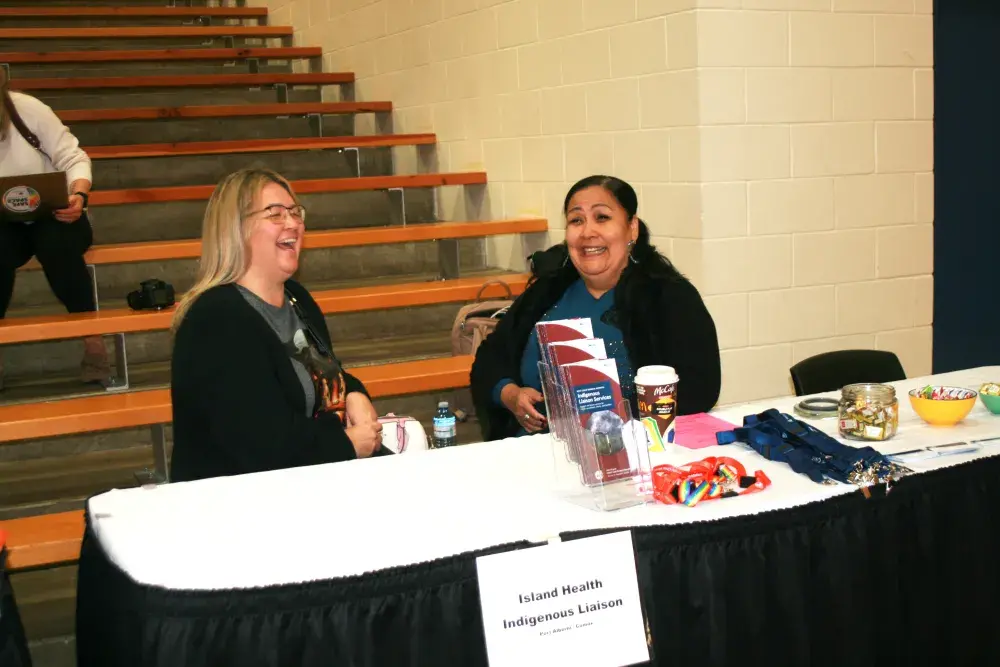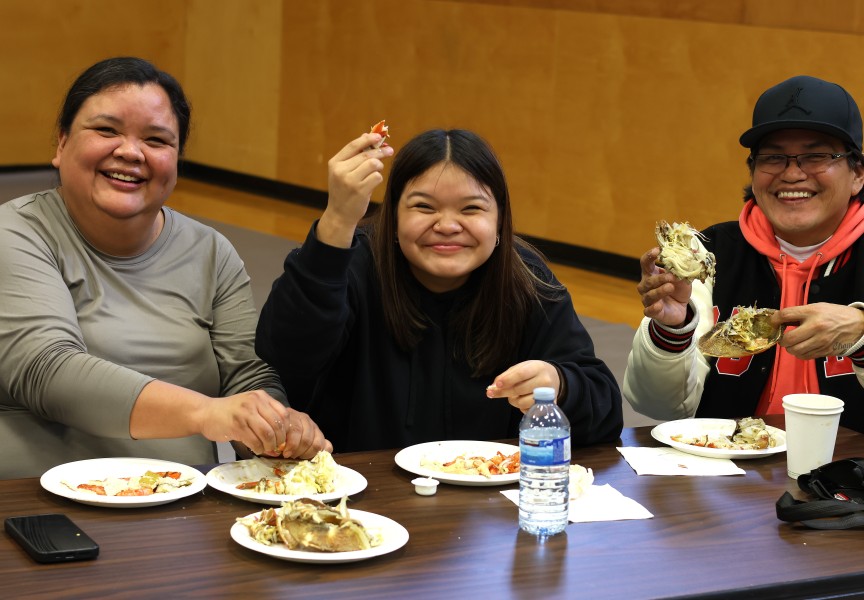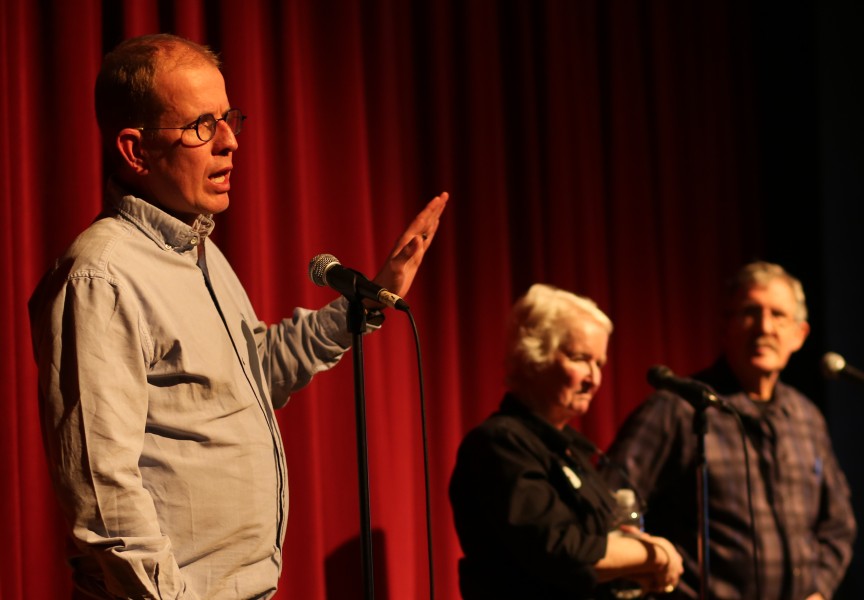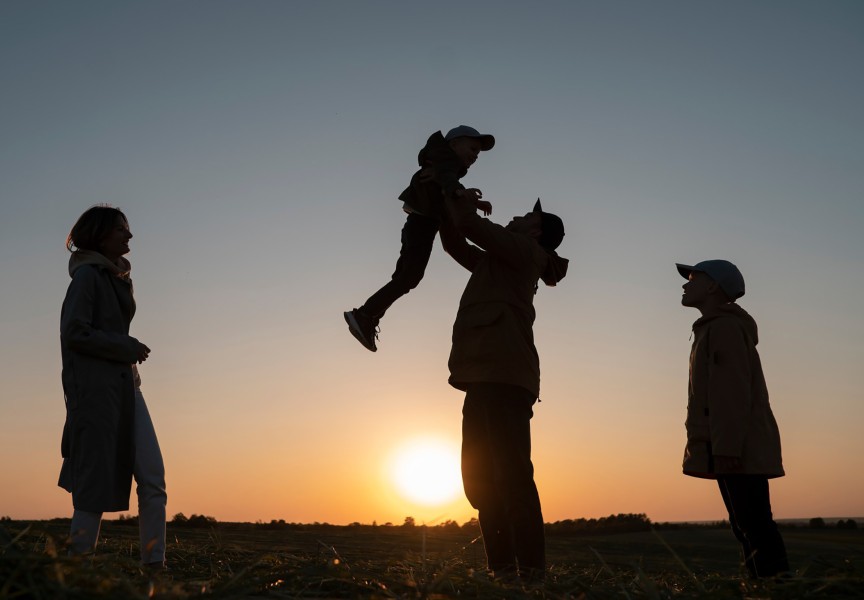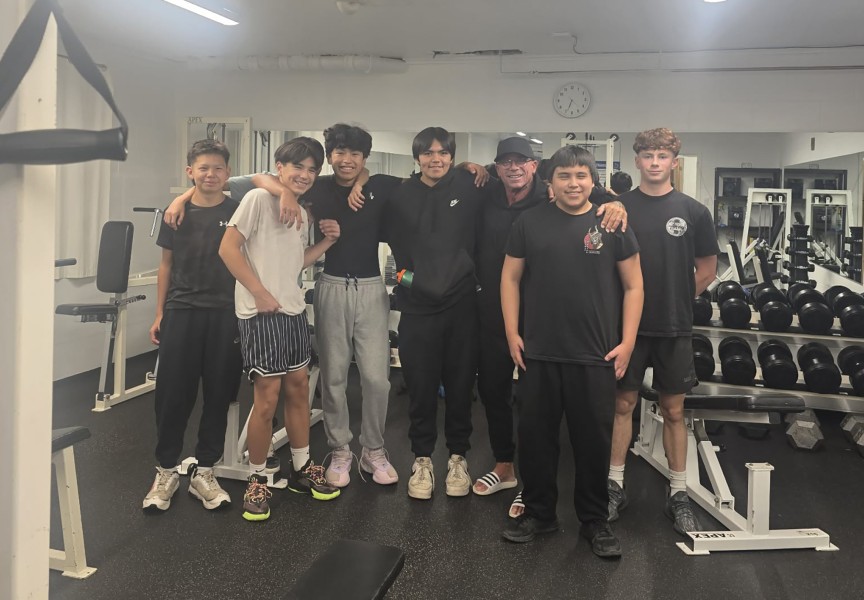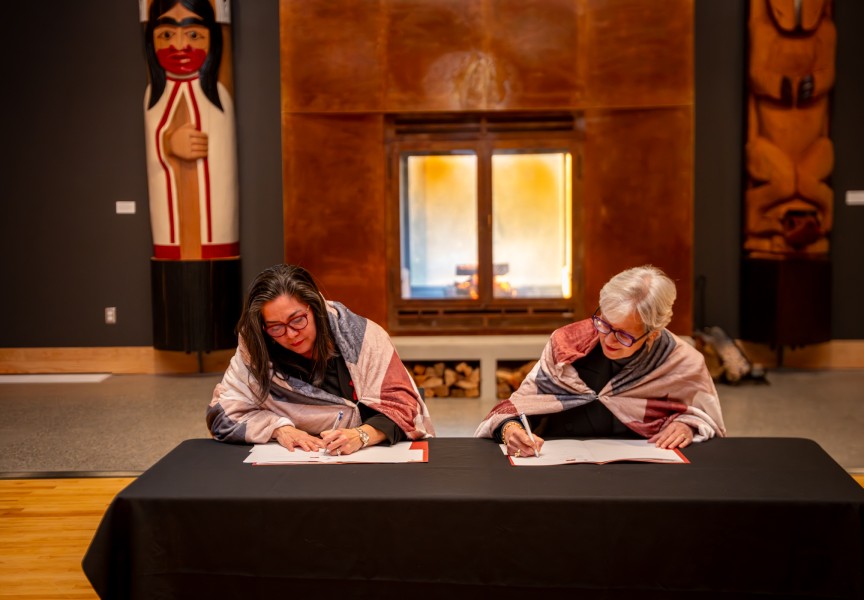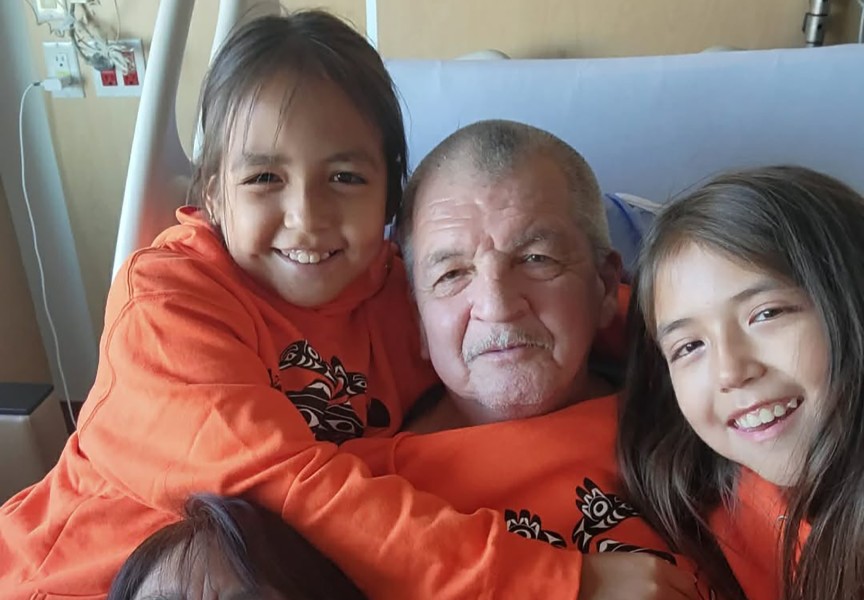The Annual Health Ability Fair, hosted by the Nuu-chah-nulth Tribal Council’s Disability Access Committee, delivered two days of helpful wellness and healthcare information at the Alberni Athletic Hall.
One of the presentations came on day two with Dr. Roger Boyer, manager of Community Health at the NTC. His presentation was called ‘Moving forward together; Self-care for mind, body and spirit through Nuu-chah-nulth values’.
Boyer’s presentation focused on information from his COVID-19 research project in which Nuu-chah-nulth-aht were surveyed about their experiences during the pandemic.
Boyer focused on wellness, and he engaged with the crowd, answering their health care questions. When it comes to seasonal vaccines, he recommended if you’re 55 or older and are managing health issues like hypertension, diabetes or chronic illness, protecting yourself from COVID or the flu could be in your best interest.
Whether or not you choose the vaccinate, Boyer reminded everyone that handwashing is the number one defense to stay well in the cold and flu season.
Some people don’t like to get vaccinated because they have gotten sick a day or two later. A woman asked why she feels worse the day after an influenza vaccination.
“That’s because your immune system has been triggered and is building defenses against flu strains,” Boyer told her.
He went on to explain that the typical flu vaccination contains 13 different strains of influenza.
“It is what we’re thinking will be circulating in the population this year,” said Boyer.
If you want to get vaccinated, Boyer said you can now get a COVID shot together with your influenza vaccination.
Getting vaccinated gives some resistance against the viruses and we never know when we’ve been exposed to the dangerous ones.
Another important reason for Nuu-chah-nulth-aht to get vaccinated lies in our genes.
“Nuu-chah-nulth have a very unique immune genome,” said Boyer, adding that many of us struggle with rheumatoid arthritis. “This means your immune system is already fighting, so when you get sick, it impacts you very hard.”
Boyer explained that this is why, for Nuu-chah-nulth people, it’s very important to get protected.
When an audience member asked if there’s anyone that should not take vaccines, Boyer said in his professional opinion, only those who believe the shot will cause more harm than good, should not take it.
“If you have any questions, or feel my information contradicts yours, just talk to your doctor,” Boyer advised.
Shingles is the chicken pox virus that lies dormant in our spine until something wakes it up. The shingles virus rash often appears in a place on your body that has been weakened by things like previous injuries or arthritis.
The shingles vaccine is expensive, but if you are immunocompromised, you may get a special authority prescription from your doctor to get the shots for free. You get one shot, then follow up six months later.
In another presentation, Amanda Watts and Ruby Ambrose described the services they offer to Indigenous people receiving care in the hospital. Amanda, a nurse, is an Indigenous Patient’s Navigator at the emergency department of the West Coast General Hospital in Port Alberni. She provides assistance to those who identify as Indigenous that come to the emergency department to receive care.
“We assist patients from the emergency department through to admitting,” said Watts.
When emergencies happen, family members are often far from their home and feeling helpless. Island Health through the First Nations Health Authority offers Indigenous Liaison Nurse and Indigenous Patient Navigator programs to support patients and their families.
Watts and Ambrose said they can assist clients with things like writing letters to help patients get assistance from their nation when it comes to patient travel. Sometimes they help to arrange rides back to the west coast.
They advocate on behalf of patients and their families as they make their way through the health care system. They will work on the patient’s behalf to ensure that their needs are being heard and attended to.
Another unique way these services support Indigenous people is the willingness to bring in supports in the form of cultural, spiritual, and traditional healing.
If you are receiving health care at the hospital and would like the support of an advocate, you may ask your nurse to connect you with one.
Ruby Ambrose is the South Island Tertiary Manager for Island Health and oversees Indigenous Patient Navigators and Indigenous Liaison Nurses at the hospitals she covers. She assists with helping patients understand their care and discharge plans.
“There are so many different kinds of supports we can do,” said Ambrose.
She says she is working on bringing in culture to the hospital setting in Port Alberni. Brushings, she said, are being provided in collaboration with Island Health staff.
“We all want the best for our people – hishukish tsawak (everything is one)”, said Ambrose.

